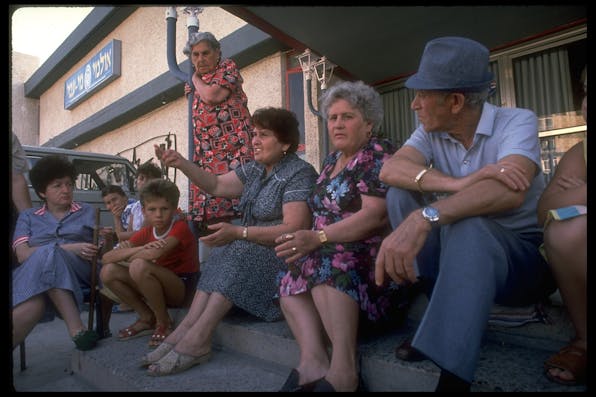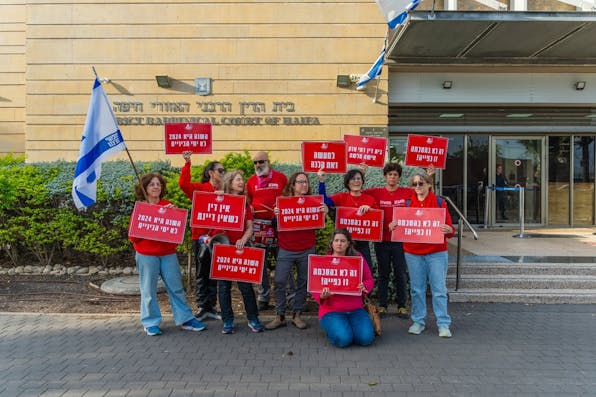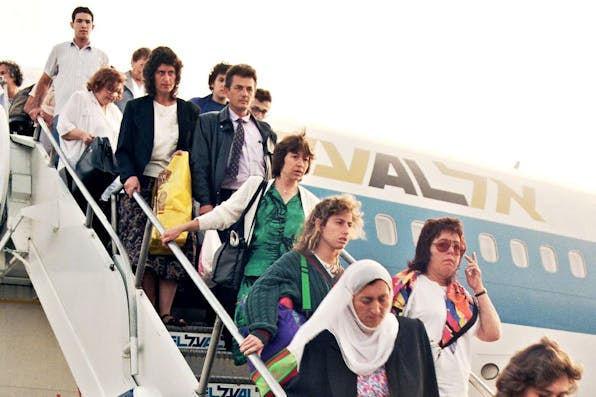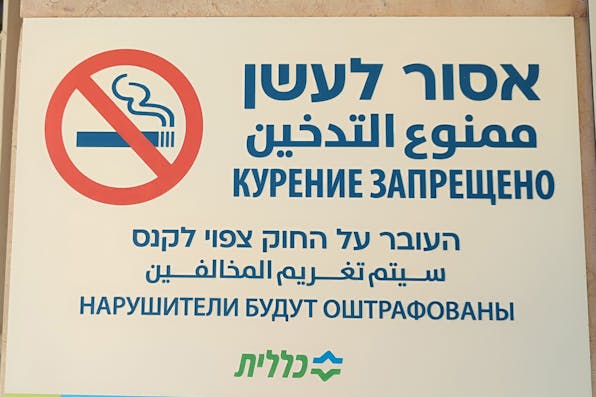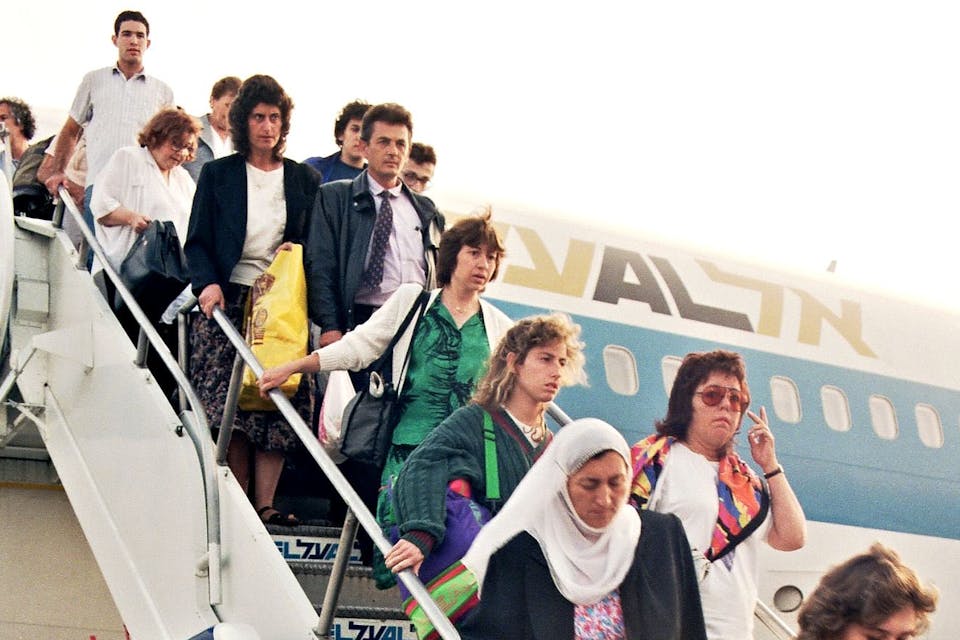
November 23, 2020
How One Million Russian Immigrants Revitalized Israel
At the end of the 1980s, Israel was barely managing its finances and its security. Then a substantial part of the professional and cultural elite of a superpower showed up.
In the summer of 1989, I left my home in Jerusalem for a reporting assignment in Europe, covering the fall of Communism from Warsaw to Berlin to Prague. A year later, I returned to a different Israel. In the supermarket there were strange cheeses and yogurt drinks labeled with Cyrillic writing, and unimagined, new products like frozen blueberries and cherries. On the streets, young musicians played cello and old men with gold teeth played accordion. The country suddenly felt as though it had become both less intimate and more claustrophobic: my daughter’s first-grade class was packed with 40 children to accommodate the immigrant influx.
I joined the staff of the recently founded Jerusalem Report magazine and was given the Russian beat. My editor, Ze’ev Chafets, told me that we Israelis are opening our home to hundreds of thousands of strangers, and none of us knows anything about who these people are. And so, I went out to learn. I sought intimate stories: a couple struggling to stay together as the husband became increasingly religious and his half-Jewish wife increasingly bewildered; the editor of a new Russian-language Israeli newspaper who had sat in the Gulag for Zionist activity but who felt himself an outsider to the Jewish story; a celebrated organist in the northern town of Carmiel who divided his time touring Europe and working as an Israeli garbageman.
The early 1990s not only brought a million Russian immigrants to Israel but tens of thousands of Ethiopians, who had been gradually arriving through the previous decade. The two immigrations were opposing images of each other: the Russians, with impressive secular education but the least Jewish knowledge of any immigrant wave; the Ethiopians, with little secular education but deep religiosity. Many Russians had come to Israel because it was as far West as they could reach; the Ethiopians had come to Zion. Inevitably, they regarded each other with suspicion and even loathing. In one absorption center I visited near Haifa, Russians and Ethiopians had to be housed in different areas after coming to blows.
